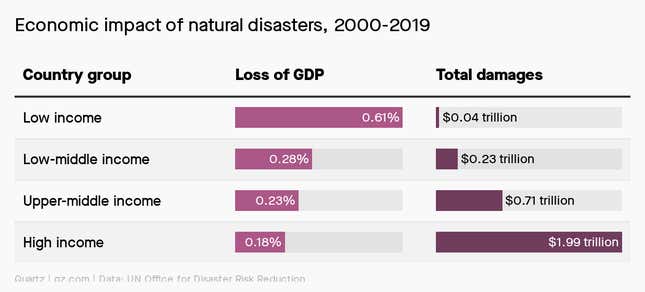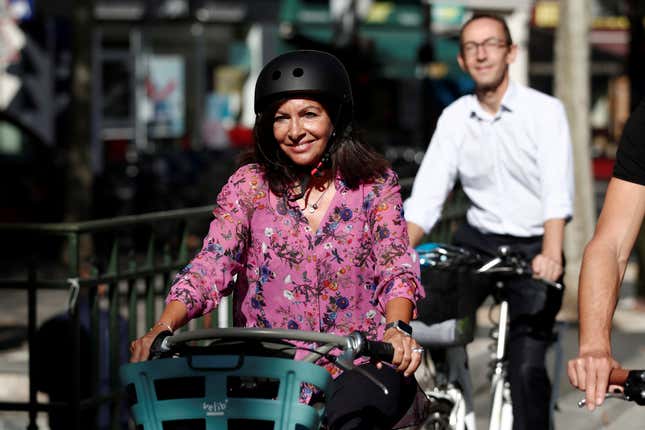Good morning, Quartz readers!
Here’s what you need to know
A new Covid-19 outbreak is prompting swift action in China. All 9 million residents of Qingdao will be tested after nine cases were linked to a local hospital. China claimed there had been no transmissions of the virus within the country for two months, although it generally doesn’t report asymptomatic cases.
China and Cambodia signed a free trade agreement. Phnom Penh was the first stop on the Chinese foreign minister’s Southeast Asia tour, which also includes Malaysia, Laos, and Thailand. Later this month, Japanese prime minister Yoshihide Suga is planning his own tour to Indonesia and Vietnam to shore up regional resistance to China. Meanwhile, Hong Kong chief executive Carrie Lam has postponed her annual policy address on Wednesday so she can go to Beijing to ask for economic aid.
Global tech tax rules hit a major snag. Disagreements between the US and Europe have pushed hopes for a deal on changing how companies like Google and Amazon are taxed to mid-2021. The new framework would encompass 137 countries and is estimated to increase global revenue by $100 billion.
Two Chinese game streaming companies agreed to a $11 billion merger. Huya will buy Douyu International in an all-share deal; Tencent Holdings has stakes in both and will own about 68% of the new business’s voting shares. Separately, a report found 70% of China’s video game revenue comes from smaller cities.
India firmed up a new economic stimulus. Plans to pay in advance some of the wages of government employees, as well as invest in infrastructure, could generate 730 billion rupees ($9.96 billion) in consumer demand. Meanwhile, some states disagree with the federal government over who should borrow to make up for revenue shortfalls this year.
Indian American voters, by the digits
1.5%: Share of US population that identifies as Indian American
5: Number of Indian Americans, including Kamala Harris, in Congress
65%: Share of Indian American respondents to a Pew survey that said they were Democrats or leaned Democratic in 2012
84%: Share of Indian American voters who chose Barack Obama in 2012
54%: Share of Indian American respondents to a 2020 survey who support Democratic candidate Joe Biden
1.8 million: Number of Indian American voters in crucial swing states
One of the wealthiest and most educated immigrant groups in the US, Indian Americans can have an outsized impact on American politics for a relatively small group.
Sumit Ganguly explains why.
Charting global climate inequality
Even a relatively low-cost storm, in terms of damage done to richer nations, can send disproportionate shockwaves through a low-income country’s economy. That’s one conclusion from a new United Nations report on the economic and human toll of disasters over the last two decades.

The report also concludes that frequency, cost, and fatality of storms are all on the rise, which means these disparities are only likely to increase. Tim McDonnell explains the latest data on global climate inequality.
Don’t underestimate the importance of body language
Advising a company on its corporate strategy over video chat is harder than it looks—as Alex Jung can attest. The Ernst & Young consultant was presenting research to a client, and it wasn’t going well. “It was a path the CEO did not want to go down,” she said.
Ordinarily Jung would have realized quickly that the CEO wasn’t happy, and adjusted her approach. But because the session was online rather than in person, due to the Covid-19 pandemic, she couldn’t easily read his body language.
The result: wasted time and effort for Jung. “Body language is important—subtle movements of the eye, a glance across the room,” Jung said. When she does a client presentation, “I’m looking for affirmation, and that’s hard to get on Microsoft Teams.”
Difficulty advising clients when they aren’t in the same room isn’t the only challenge looming these days for EY and other major consulting firms like McKinsey, Accenture, and Deloitte. Read more in our guide to consulting’s new challenges.
✦ Our body language is welcoming you to try out all of our field guides and presentations in addition to a paywall-free experience by nabbing a Quartz membership, now 20% off the first year with the code QZTWENTY.
Obsession interlude: Rethinking cities

Anne Hidalgo may be the modern model of a visionary mayor. Energized by climate and health crises resulting from Paris’s famously high pollution levels, Hidalgo has focused on returning the city’s streets to its people, and on reducing emissions. She banned cars in parts of the city center, redesigned historical intersections, and shut major thoroughfares. Just last month, Hidalgo was listed as one of Time Magazine’s 100 most influential people of 2020.
Many of the mayor’s initiatives have been controversial, but Hidalgo was reelected this summer on a platform that included a proposal for a “15-minute city”—one in which essentials are within a short walk or cycle for all Parisians. Because of her progressive policies, Paris is more prepared than most for a post-pandemic reality in which social distancing is the norm and streets are increasingly reoriented towards cyclists, pedestrians, and restaurants.
Ride along on the ideas reshaping the urban landscape with our Rethinking Cities obsession.
We’re giving back to loyal Quartz Daily Brief readers. With our new referral program, you can rack up endless thanks and premium Quartz bounty by sharing the Daily Brief with friends and coworkers. Sign up today to start earning rewards.
Surprising discoveries
That’s no asteroid. A new mini-moon temporarily being pulled into Earth’s orbit is likely a 1960s-era rocket.
You can power your video games with potatoes. It just takes 100 pounds of spuds to run Doom on a graphing calculator.
A new take on celebrity impersonators. Being the face under the face in deepfake videos is a new industry.
China is boosting its digital currency with a lottery. Almost 2 million people signed up to receive one of 50,000 “red packets,” worth a total of 10 million yuan ($1.49 million).
These colors absolutely run. Sacramento, California officials have asked voters to stop disinfecting their mail-in ballots.
Our best wishes for a productive day. Please send any news, comments, space junk, and ruined ballots to hi@qz.com. Get the most out of Quartz by downloading our iOS app and becoming a member. Today’s Daily Brief was brought to you by Amanda Shendruk, Susan Howson, Tim McDonnell, and Liz Webber.